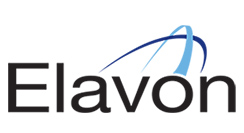
Preparing for retirement: 8 steps to take

Multiple accounts can make it easier to follow a monthly budget

Estate planning documents: Living trusts vs. will vs. living will

Why estate planning is important

How a Health Savings Account (HSA) can benefit your retirement plan

How to manage your money: 7 tips to improve your finances

Year-end financial checklist

Trends in economics, immigration and mobility policy

Finance or operating lease? Deciphering the legalese of equipment finance

Buying or leasing? Questions to ask before signing a contract

Insource or outsource? 10 considerations

The secret to successful service provider integration

Colleges respond to student needs by offering digital payments

6 timely reasons to integrate your receivables

Benefits of billing foreign customers in their own currency

Improve government payments with electronic billing platforms

Hospitals face cybersecurity risks in surprising new ways
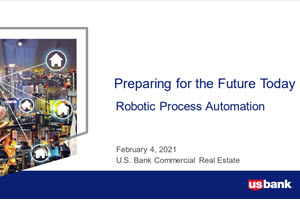
Webinar: Robotic process automation
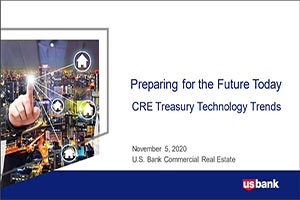
Webinar: CRE technology trends

5 Ways to protect your government agency from payment fraud

Government agency credit card programs and PCI compliance

Access, flexibility and simplicity: How governments can modernize payments to help their citizens

Modernizing fare payment without leaving any riders behind

Tap-to-pay: Modernizing fare payments pays off for transit agencies and riders

How real-time inventory visibility can boost retail margins

Escheatment resources: Reporting deadlines for all 50 states

Payment industry trends that are the future of POS

White Castle optimizes payment transactions

ABCs of APIs: Drive treasury efficiency with real-time connectivity

Managing the rising costs of payment acceptance with service fees

Three healthcare payment trends that will continue to matter in 2022

Want AP automation to pay both businesses and consumers?

Webinar: CSM corporation re-thinks AP

Increase working capital with Commercial Card Optimization

How to improve digital payments security for your health system

3 benefits of integrated payments in healthcare

Top 3 ways digital payments can transform the patient experience

Automate accounts payable to optimize revenue and payments

Automate escheatment for accounts payable to save time and money

Ways prepaid cards disburse government funds to the unbanked

3 reasons governments and educational institutions should implement service fees
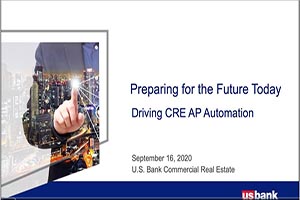
Webinar: AP automation for commercial real estate

Understanding and preparing for the new payment experience

Safeguarding the payment experience through contactless

COVID-19 safety recommendations: Are you ready to reopen?

Higher education and the cashless society: Latest trends

3 ways to make practical use of real-time payments

4 benefits to paying foreign suppliers in their own currency

Restaurant surveys show changing customer payment preferences

Unexpected cost savings may be hiding in your payment strategy

Digital trends poised to reshape hotel payments

Enhancing the patient experience through people-centered payments

Overcoming the 3 key challenges of a lump sum relocation program

How to sell your business without emotions getting in the way

5 steps to take before transitioning your business

10 tips on how to run a successful family business

Streamline operations with all-in-one small business financial support

Checklist: What you’ll need for your first retail pop-up shop

How mobile point of sale (mPOS) can benefit your side gig

Talent acquisition 101: Building a small business dream team

Make your business legit

How I did it: Turned my side hustle into a full-time job

Costs to consider when starting a business

How to test new business ideas

How to get started creating your business plan

How to establish your business credit score

The costs of hiring a new employee

4 restaurant models that aren’t dine-in

How business owners are managing during the supply chain crisis

How to expand your business: Does a new location make sense?

Rethinking common time management tips

How to apply for a business credit card

How jumbo loans can help home buyers and your builder business

How to accept credit cards online

How Everyday Funding can improve cash flow

How a travel clothing retailer is staying true to its brand values

How to build a content team

Multigenerational household financial planning strategies

LGBTQ+ financial planning tips

Do I need a financial advisor?

5 financial goals for the new year

How to track expenses

How to manage your finances when you're self-employed

Good debt vs. bad debt: Know the difference

Reviewing your beneficiaries: A 5-step guide

Estate planning checklist: 8 steps to secure your legacy

How to talk about money with your family

Financial steps to take after the death of a spouse

6 tips for trust fund distribution to beneficiaries

How to build wealth at any age

Retirement plan options for the self-employed

Retirement advice: How to retire happy

Key milestone ages as you near and start retirement

Retirement income planning: 4 steps to take

Retirement savings by age

Preparing for retirement: 8 steps to take

8 steps to choosing a health insurance plan

What is Medicare? Understanding your coverage options

7 things to know about long-term care insurance

Working after retirement: Factors to consider

4 steps to finding a charity to support

Year end tax planning tips

Should I itemize my taxes?

Do your investments match your financial goals?

Investment strategies by age

Tips for navigating a medical hardship when you’re unable to work

11 essential things to do before baby comes

How to plan and save for adoption and in vitro fertility treatment costs

Checklist: 10 questions to ask your home inspector

Closing on a house checklist for buyers

Resources for managing financial matters after an unexpected death

What you need to know as the executor of an estate

When your spouse has passed away: A three-month financial checklist

What documents do you need after a loved one dies?

How to save money in college: easy ways to spend less

How I did it: Paid off student loans
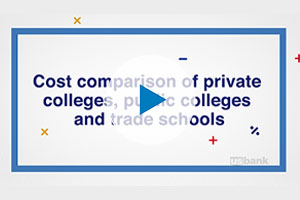
Bank Notes: College cost comparison

Annual insurance review checklist

From LLC to S-corp: Choosing a small business entity

Friction: How it can help achieve money goals

How I kicked my online shopping habit and got my spending under control

How I did it: Learned to budget as a single mom

Your 5-step guide to financial planning

Uncover the cost: Wedding

Uncover the cost: International trip

What military service taught me about money management

Tips to overcome three common savings hurdles

Adulting 101: How to make a budget plan

Personal loans first-timer's guide: 7 questions to ask

3 awkward situations Zelle can help avoid

How to save money while helping the environment

How can I help my student manage money?

Which is better: Combining bank accounts before marriage — or after?

Do you and your fiancé have compatible financial goals?

U.S. Bank asks: Transitioning out of college life? What’s next?

U.S. Bank asks: Do you know your finances?

Personal finance for teens can empower your child

Is it time to get a shared bank account with your partner?

It's possible: 7 tips for breaking the spending cycle

How to save for a wedding

Here’s how to create a budget for yourself

Don’t underestimate the importance of balancing your checking account

9 simple ways to save

7 steps to prepare for the high cost of child care

A passion for fashion: How this student works the gig economy

Tips for working in the gig economy

Dear Money Mentor: How do I set and track financial goals?

5 reasons why couples may have separate bank accounts

Lost job finance tips: What to do when you lose your job

Money Moments: 3 smart financial strategies when caring for aging parents

Money management guide to financial independence

Money Moments: 8 dos and don’ts for saving money in your 30s

7 financial questions to consider when changing jobs

30-day adulting challenge: Financial wellness tasks to complete in a month

Travel for less: Smart (not cheap) ways to spend less on your next trip

Money Moments: How to manage your finances after a divorce

What’s in your emergency fund?

P2P payments make it easier to split the tab

What you need to know about renting

How to stop living paycheck to paycheck post-pay increase

Understanding guardianship and power of attorney in banking

What financial advice would you give your younger self?

How grandparents can contribute to college funds instead of buying gifts

How to open and invest in a 529 plan

Using 529 plans for K-12 tuition

Parent checklist: Preparing for college

What to consider before taking out a student loan

How to use debt to build wealth

7 steps to keep your personal and business finances separate

Dear Money Mentor: How do I begin paying off credit card debt?

For today's homebuyers, time and money are everything

Crypto + Homebuying: Impacts on the real estate market

Should you buy a house that’s still under construction?

House Hacks: How buying an investment property worked as my first home

Your guide to breaking the rental cycle

Military homeownership: Your guide to resources, financing and more

How I did it: Bought a home without a 20 percent down payment

Home buying myths: Realities of owning a home

4 ways to free up your budget (and your life) with a smaller home

Money Moments: Tips for selling your home

First-time homebuyer’s guide to getting a mortgage

Beyond the mortgage: Other costs for homeowners

10 ways to increase your home’s curb appeal

10 questions to ask when hiring a contractor

5 things to avoid that can devalue your home

Myth vs. truth: What affects your credit score?

Car shopping: Buying versus leasing your next vehicle

Take the stress out of buying your teen a car

How to winterize your vehicle

Questions to ask before buying a car


